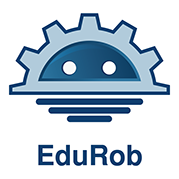A fun and easy way to learn for a better future
Educational Robotics for People
with Learning Disabilities
Special Needs Education
Robotic Mediated Learning
Special Needs Education
Individualised Education
Robots can provide a powerful alternative learning method for students with learning disabilities. Utilising the multiple sensor arrays available in modern robots, they can be programmed to interact with students in specific ways to encourage and engage them in learning activities. Certain students may find robots easier to engage with and less threatening than human trainers. Robots can play a key role in enhancing the informal learning most children naturally develop as they play.
Special needs education is the practice of educating students with intellectual disabilities in a way that addresses their individual differences and needs. This process involves the individually planned and systematically monitored arrangement of teaching procedures. Equipment and materials design adapt to help learners with special needs achieve a higher level of personal self-sufficiency and success in school and the community.
Individual Education Plans include a child’s classification, placement, services (such as a one-on-one aid and therapies), academic and behavioural goals, percentage of time in regular education and progress reports from teachers and therapists. These plans are tailored specifically to the child’s special needs – not to the needs of the teacher, school or district. Software will be developed to allow a set of adaptable learning tools, working with a number of different types of robots to allow educators to tailor learning for a student’s Individual Education Plan.
This project (543577-LLP-1-2013-1-UK-KA3-KA3MP) has been funded with support from the European Commission [Lifelong Learning Programme of the European Union]. This website reflects the views only of the author, and the European Commission cannot be held responsible for any use which may be made of the information contained therein

